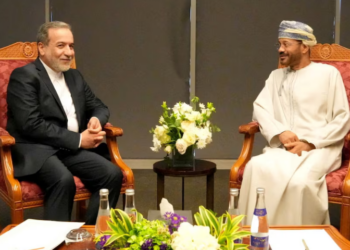Brussels, April 10, 2025: The European Union has announced a 90-day pause on its planned countermeasures against U.S. tariffs after President Donald Trump unexpectedly rolled back a series of new duties imposed on dozens of countries.
EU Commission President Ursula von der Leyen confirmed the decision Thursday, stating that the bloc would delay implementing retaliatory tariffs on approximately €21 billion ($23.25 billion) worth of U.S. imports, which were set to begin next Tuesday.
“We want to give negotiations a chance,” von der Leyen said on X. “While finalizing the EU countermeasures, which received broad support from our Member States, we will put them on hold for 90 days.”
The development came less than 24 hours after Trump announced a temporary suspension of most of his newly imposed tariffs, a move that sent global markets rallying and eased fears of a full-scale trade war. However, he escalated tensions with China, raising tariffs on Chinese goods from 104% to 125% and signing an executive order aimed at curbing China’s dominance in global shipping and revitalizing U.S. shipbuilding.
Trump’s abrupt reversal followed a sharp spike in market volatility, reminiscent of the early COVID-19 crisis, with trillions wiped off global markets and U.S. bond yields surging—a development that reportedly caught the president’s attention. The relief was quickly felt worldwide, lifting U.S., Asian, and European stocks and stabilizing bond markets.
Despite the tariff pause, a 10% blanket duty on nearly all U.S. imports remains in effect, according to the White House. Tariffs on autos, steel, and aluminium are also still in place, and the reprieve does not apply to Canada and Mexico, whose exports remain subject to a 25% duty linked to fentanyl-related clauses in the USMCA.
In Europe, the decision spurred optimism, with eurozone bond yields climbing, markets reducing expectations of ECB rate cuts, and equities posting strong gains. Still, von der Leyen cautioned that preparations for further countermeasures would continue if negotiations falter. “All options remain on the table,” she said.
Meanwhile, China responded defiantly. Commerce Ministry spokesperson He Yongqian dismissed the U.S. approach as “threats and blackmail,” asserting that Beijing would “follow through to the end” if Washington continues unilateral actions. China had already imposed retaliatory tariffs of up to 84% on U.S. imports the day prior.
The standoff continues to weigh on global economic sentiment. Oil prices dropped 2% Thursday amid renewed fears of a recession triggered by the escalating U.S.-China trade war. European Central Bank officials and business leaders echoed the cautious tone.
Francois Villeroy de Galhau, a member of the ECB Governing Council, called the development “less bad news” but warned that continued uncertainty could undermine growth and trust.
Nicolas Ozanam, head of the French wine and spirits federation (FEVS), said the pause offered partial relief but pointed to persistent challenges. “The 90-day window poses logistical constraints, and the remaining 10% duties will still lead to higher prices and reduced consumption in the U.S.,” he told Reuters.
India and several other countries have expressed interest in fast-tracking trade talks with Washington amid the shifting landscape, hoping to capitalize on the temporary breathing room.








